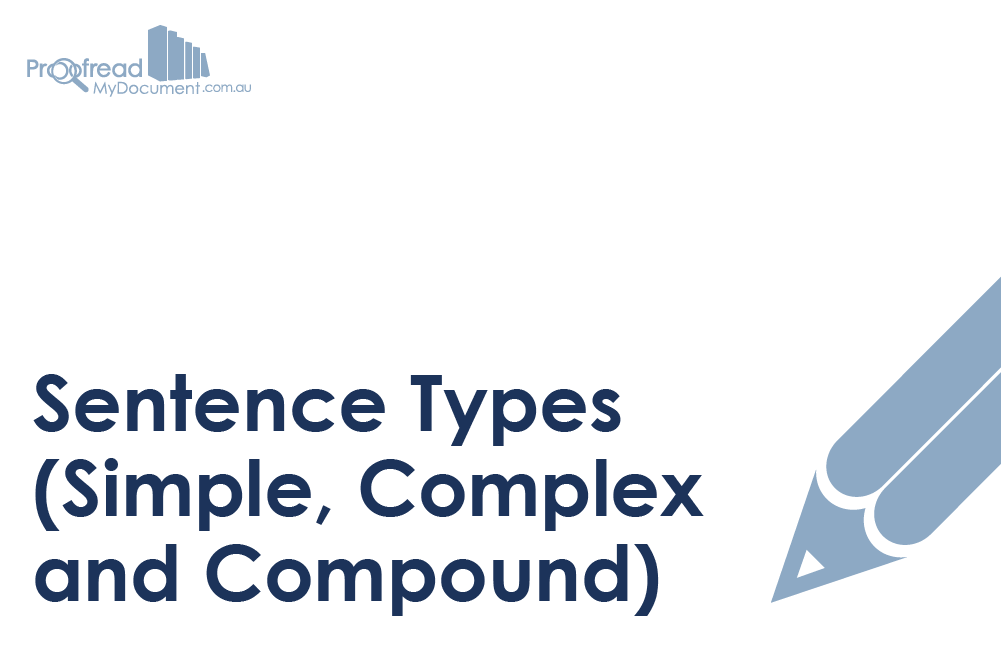Today we’re looking at how to construct different sentence types! Wait! Where are you going? Come back! Just give us a moment to explain.
We know that sentence construction doesn’t sound exciting, but varying the length and type of sentences in your written work can boost its readability.
To do that, however, you’ll need to understand the three main sentence types: simple, compound and complex sentences. We might even take a cheeky look at compound-complex sentences, if you’re lucky.
Simple Sentences
All sentences should express a complete thought. The simplest sentences do this with just a subject (i.e. the active thing or person in a sentence) and a verb (i.e. an action). For instance, we could say:
|
Subject |
Verb |
|
She… |
…jumped. |
In the above, the subject is ‘she’ and the verb is ‘jumped’, so the sentence expresses the idea of a person having jumped. Many sentences also have an object, which is the thing acted upon:
|
Subject |
Verb |
Object |
|
She… |
…jumped… |
…the hurdle. |
Not all simple sentences are so basic, since we can add detail without changing the overall structure:
She and I jumped up and over the hurdle at the same time.
Here, we’ve used a compound subject, a verb phrase, and a bonus adverbial phrase! But the basic sentence type remains the same. This is known as an independent clause due to being a meaningful sentence on its own.
Compound Sentences
Compound sentences combine two or more independent clauses, typically using a coordinating conjunction (e.g. ‘but’ or ‘and’):
Find this useful?
Subscribe to our newsletter and get writing tips from our editors straight to your inbox.
|
Clause 1 |
Coordinating Conjunction |
Clause 2 |
|
She jumped,… |
…and… |
…he ducked. |
The crucial thing is that the clause on either side of the conjunction could work as a standalone sentence by itself (i.e. ‘She jumped’ and ‘And he ducked’ could both work as standalone sentences).
Complex Sentences
Complex sentences combine an independent clause with a dependent clause (i.e. a clause that contains a verb but doesn’t express a complete thought). Dependent clauses begin with a subordinating conjunction, like ‘although’ or ‘whereas’. For instance, we could say:
She loves jumping, whereas he loves ducking.
Or they begin with a relative pronoun, like ‘which’ or ‘whose’:
She’s always jumping, which is good exercise!
In either case, the dependent clause wouldn’t work as a sentence by itself.
Compound-Complex Sentences
A compound-complex sentence is one that contains at least two independent clauses and one dependent clause, such as:
While I have no preference, she loves jumping, and he loves ducking.
Here, ‘While I have no preference’ is a dependent clause (i.e. ‘while’ implies a comparison, so the clause is not a complete sentence by itself). But ‘she loves jumping’ and ‘he loves ducking’ are independent clauses connected by a coordinating conjunction, and both could word as standalone sentences.
Using Different Sentence Types Effectively
Understanding grammar can help you use to vary sentence type and length effectively. If you find yourself using a lot of short, simple sentences in your work, for instance, try using conjunctions to create compound sentences or adding detail to make some into complex sentences.
Alternatively, if you mostly use long compound and complex sentences, it might be worth breaking a few of them down into shorter simple sentences.
If you do this, you should find your writing flows more smoothly. But if you’d like to be extra sure your writings reads well, we have proofreaders ready to help. Upload a 500-word trial document for free to find out more.
